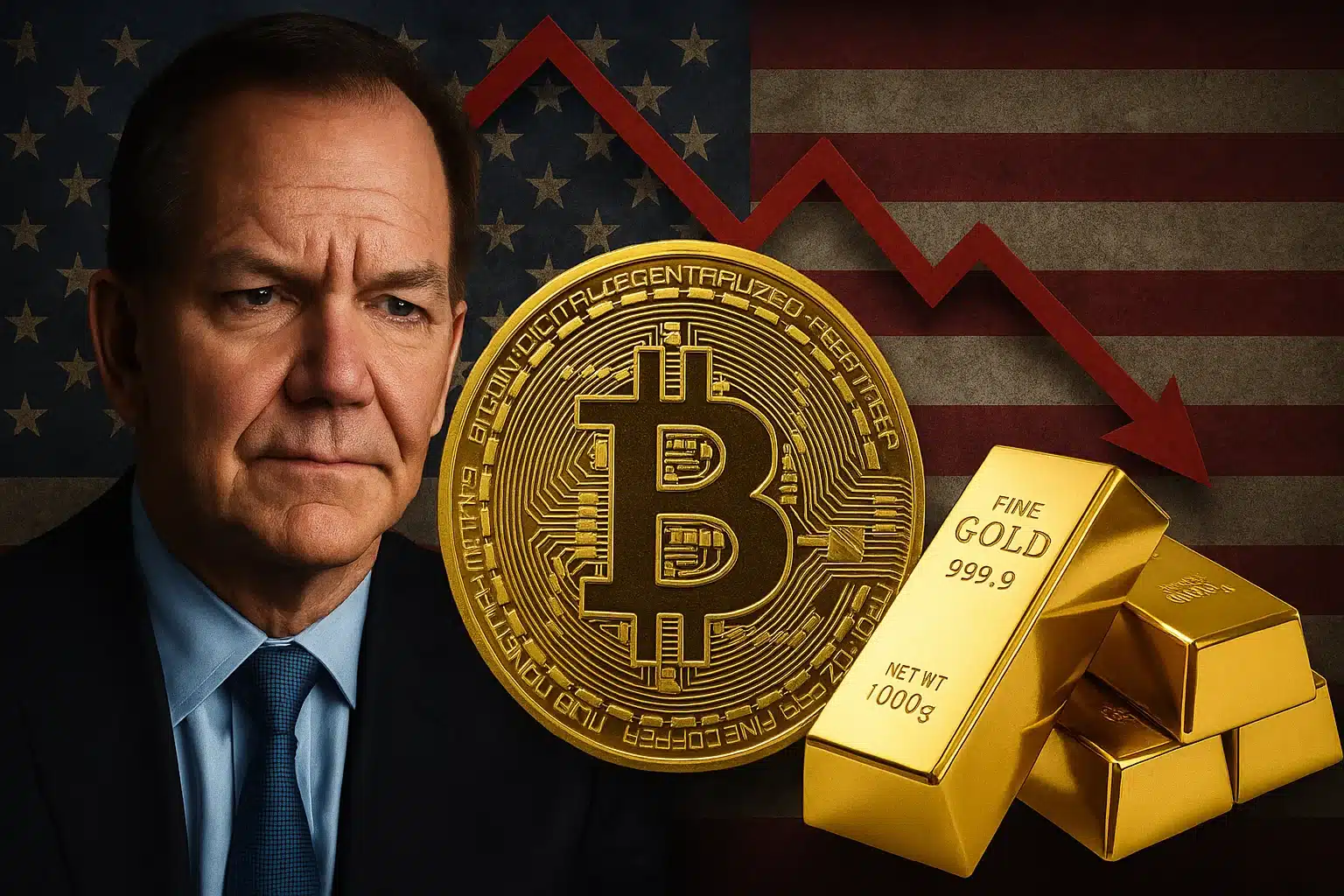Paul Tudor Jones, billionaire hedge fund manager and legendary macro investor, has raised a red flag over the U.S. economy. In a recent Bloomberg interview, Jones said the U.S. government is heading toward a debt spiral, potentially forcing policymakers into strategies that could reshape the global investment landscape.
His advice to investors? Prepare for an era of financial constraint—and make room in your portfolios for Bitcoin, gold, and equities.
U.S. Policy Constrained by Debt and Inflation
According to Jones, America’s debt burden has become so heavy that traditional tools like interest rate hikes may no longer be viable. Instead, the government may resort to keeping interest rates below inflation in an attempt to reduce the real value of debt over time—a policy that historically diminishes the value of cash and bonds.
“We are going to face negative real rates,” Jones stated, adding that this scenario forces investors to rethink how they diversify their wealth.
The implication is clear: conventional portfolios may no longer deliver reliable returns in a financially repressed environment. The new normal could demand protection against devaluation, volatility, and policy uncertainty.
Bitcoin and Gold Take the Spotlight
Jones emphasized that Bitcoin (currently at $107,738.69) and gold are critical hedges in a high-inflation, low-yield era. While equities have historically offered robust returns, Jones argues that a combination of risk-adjusted Bitcoin, gold, and stocks may now represent the most resilient portfolio mix.
He warned that should bond markets destabilize, even equities could lose their shine—unless balanced with non-correlated, value-retaining assets like BTC and gold.
“Ideal portfolios must now reflect the challenges policymakers face,” said Jones. “We need to think ahead—not just about returns, but about resilience.”
At the time of writing, both Bitcoin and gold are trading near all-time highs. This market environment suggests a shifting investor psychology, one where traditional safe havens and newer decentralized assets are finding common ground.
Politics and Monetary Policy: A Risk Factor
Looking forward, Jones hinted at potential political developments that could deepen the economic shift. He speculated that a re-elected Donald Trump might appoint a “dovish” Federal Reserve chair, replacing Jerome Powell when his term ends in May 2026. Such a move could further entrench low-rate policies, amplifying the need for assets that hedge against currency debasement.
According to Dey There, this confluence of monetary, political, and macroeconomic risks makes it essential for investors to take proactive steps. Relying solely on bonds or cash might no longer be sufficient.



















































































































